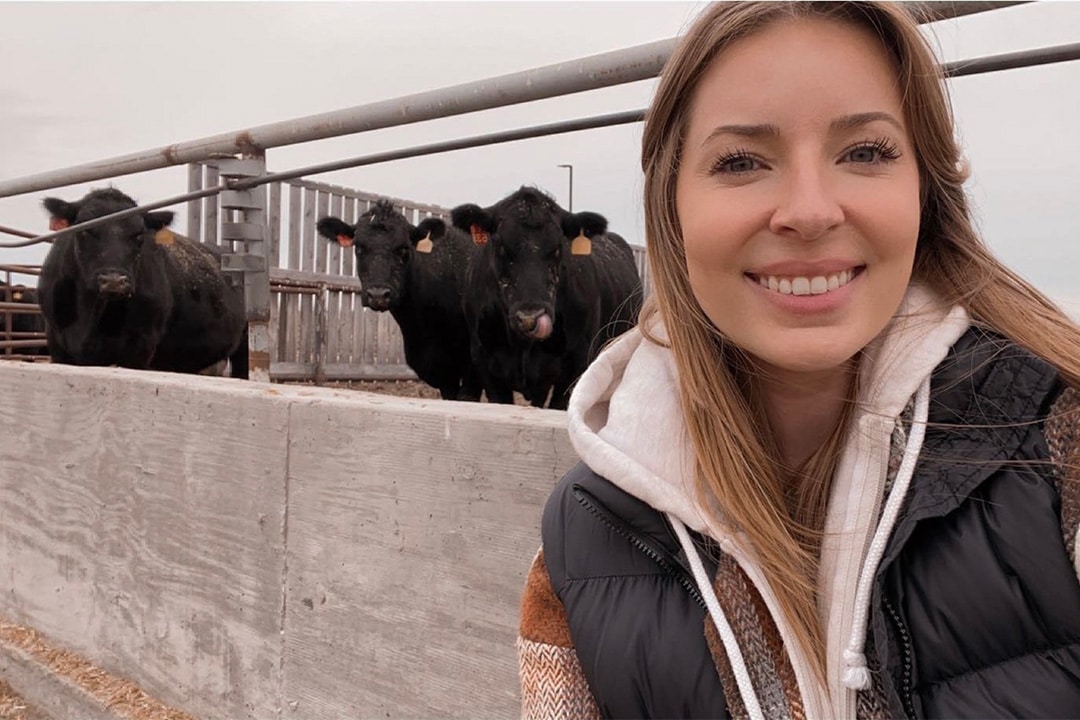A research project looked into if canola seed pellets can be used as a dietary supplement for pregnant cows to improve their health and the health of their calves, a Sept. 12 news release said.
University of Saskatchewan graduate student Erika Cornand and her supervisor Bart Lardner used research facilities located at the USask Livestock and Forage Excellence Centre (LFCE) in Clavet, Sask. to monitor 72 cows over the past two years during their pregnancies.
The release noted the groups of cattle were randomly chosen to receive differing amounts of the canola supplement at the same stage in their pregnancies. One group received no extra fat supplement, while the other two groups received 150 and 300 grams of fat per day, respectively. Body weight of the cows and the quality and volume of milk produced after calving was recorded throughout the study to track the effects of the additional fat supplement.
“Cattle can typically be fed three to eight per cent fat in their total diet before any negative effects are commonly reported,” Cornand. “We’re looking to determine if positive effects on cow and calf performance seen in previous research can be replicated here, and to determine if there is a specific level where the benefits [of a supplement] are maximized.”
The cattle received the trial canola-based supplement for 150 days before being transitioned back to a regular diet, the release said.
“Our preliminary results suggest that providing the canola seed-based pellet during the second and third trimesters of pregnancy improved their body condition scores and the pregnancy rate of the cows,” Cornand said. Noting preliminary results of the study are good news for both beef producers with cattle to raise and grain farmers who may have canola to discard.
“Rather than off-grade canola being sold at discounted rates, there is the possibility for grain producers to sell their product to cattle producers,” Cornand added. “There are potential benefits for the cow and her offspring which may carry over into economic profitability.
The release said the study is also planning to examine how the additional fat in the mother’s diet may cause genetic differences in her offspring.
“We are wrapping up the second year of data collection for the cow portion of this study,” Cornand explained, noting that the project will now move into a phase where calves are weaned from their mothers and raised in feedlots at the LFCE according to industry guidelines. “We’ve collected additional data from all calves born [during the study period] that will be analyzed for genetic differences due to prenatal fat supplementation.”
Cornand is on track to finish her master’s degree by December 2023, but the study will continue on with the calf portion of the trial and a genetic analysis to follow in the next few years, the release said. Final results are expected to be complete in 2026.
Related Articles
Yadeta Kabeta is Breeding Barley in the Heart of Cattle Country





